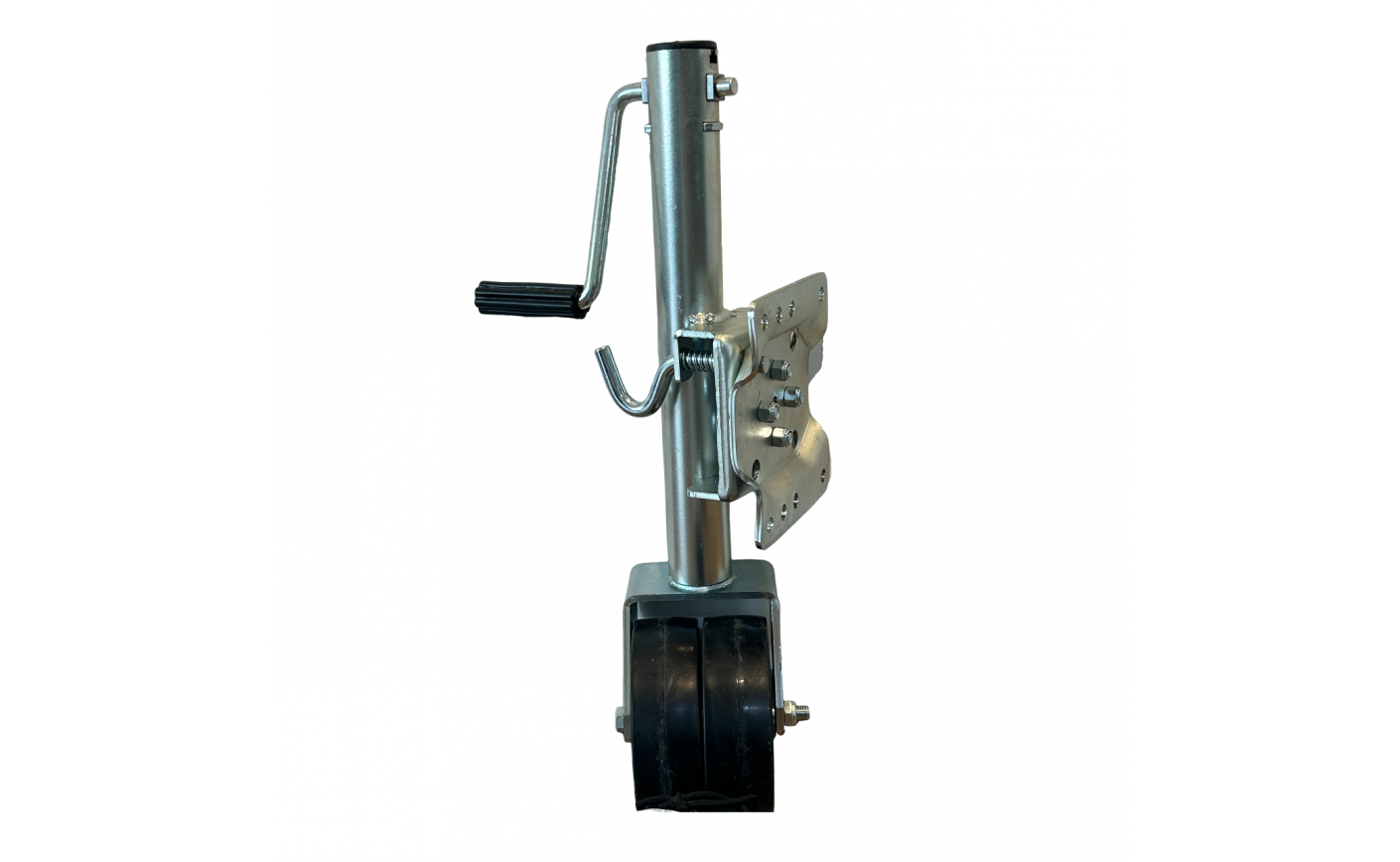When you need a towing device to jack up a boat trailer, you will find that most cars are equipped with jacks that are not big enough to lift something as big as a boat, so you need this hitch jack to complete the work. The followings are the precautions for selecting and using the
trailer hitch jack.
Hitch jacks, also known as trailer jacks or tongue jacks, are used to raise and stabilize a trailer so they can be attached to the towing vehicle. It's one of many hitch accessories used to make the process of towing a little easier.
Typically, hitch jacks attach onto the trailer's tongue - the long beam at the front that extends out and connects with the towing vehicle. The jack is secured to that beam and extends vertically to the ground, where it has a metal base or even a wheel in some cases.
A hitch jack isn't like the tire jack that comes with most cars, which is a diamond-shaped piece of metal that expands outwardly as you turn an iron, raising the vehicle off the ground. Most commonly, hitch jacks include a crank that turns internal gears, which then extend out of a metal shaft. The shaft raises the trailer off the ground so that it can be properly hitched onto the towing vehicle.
Precautions for choosing a trailer jack
(1) First, when choosing hitch jacks, it's important to know your trailer and its tongue dimensions. For example, you will see jacks that say "fits tongues up to 3" x 5." Some hitch jacks bolt onto the tongue itself; others require drilling, and some do not come with installed equipment.
(2) Next, know how much you'll be carrying. Your jack needs to be strong enough to lift what you'll be towing. Fortunately, there are a wide variety of jacks out there to suit your hitch, from ones that can pump up an 800-pound mini-trailer with a motorcycle on the back to heavy-duty jacks that can support 5,000 pounds or more.
(3) You should also note the ground clearance of the tongue. The jack won't do any good if it can't reach the pavement, so jacks come in different lengths to suit different trailers. Some jacks come with wheel casters on the bottoms. These small wheels aren't meant to be left on while you're driving, they do make storing the trailer in your garage a little easier. If you're towing a boat, get a hitch jack that won't corrode or rust with exposure to water.
(4) Finally, you may want to consider purchasing a power jack. Rather than having to manually crank the trailer up and down, which can be time-consuming and physically difficult, these jacks plug into the vehicle's battery and raise and lower themselves. These are often more expensive than manual towing accessories.
Instructions
(1) Connect the base of the jack to the pavement. Often, this is done by releasing a pin that drops the base down to the ground.
(2) Use the jack to raise the trailer to an elevated position.
(3) Carefully your vehicle up so it's lined up with the trailer's tongue.
(4) Crank the jack down until the trailer is seated over the hitch.
(5) Connect the trailer to the jack on the towing vehicle.
Safety concerns with hitch jacks
Just like changing a tire with a jack on your car, there are safety precautions you must take when using a hitch jack.
(1) First, put chocks on both sides of the trailer wheels to keep them from moving. These can usually be purchased wherever towing equipment and hitch accessories are sold. Next, make sure you raise the trailer on level ground. Use a scale to measure and balance the weight load properly. Trailer jacks support a lot of weight, so if your jack becomes unbalanced or can't support the weight, it could fall on you or roll away.
(2) Also, be wary of backing up your towing vehicle to the raised trailer. You must precisely line up the trailer hitch with the tongue, which can take several attempts. If done wrong you could damage your towing vehicle by backing up too far.
(3) Finally, if you're using an electric jack, disconnect the towing vehicle's negative battery cable before you begin working so you don't accidentally electrocute yourself or damage the electrical components.
The trailer jacks manufactured by HAWAY are made of heavy-duty materials and powder-coated surface treatment. We also produce light-duty trailer jacks and heavy-duty trailer jacks, with capacities ranging from 2000 pounds to 7000 pounds. If you want to learn more about trailer jacks after reading the above, you can contact us for professional solutions.
As a professional manufacturer of
trailer parts, we have accumulated rich manufacturing experience in this field. We have a professional production department and strict quality management system, which can control the quality of our products in an all-round way so as to provide customers with high-quality and safe products. At the same time, we can also provide thoughtful services and effective solutions according to customer needs. If you are interested in our trailer jacks, please contact us immediately!

